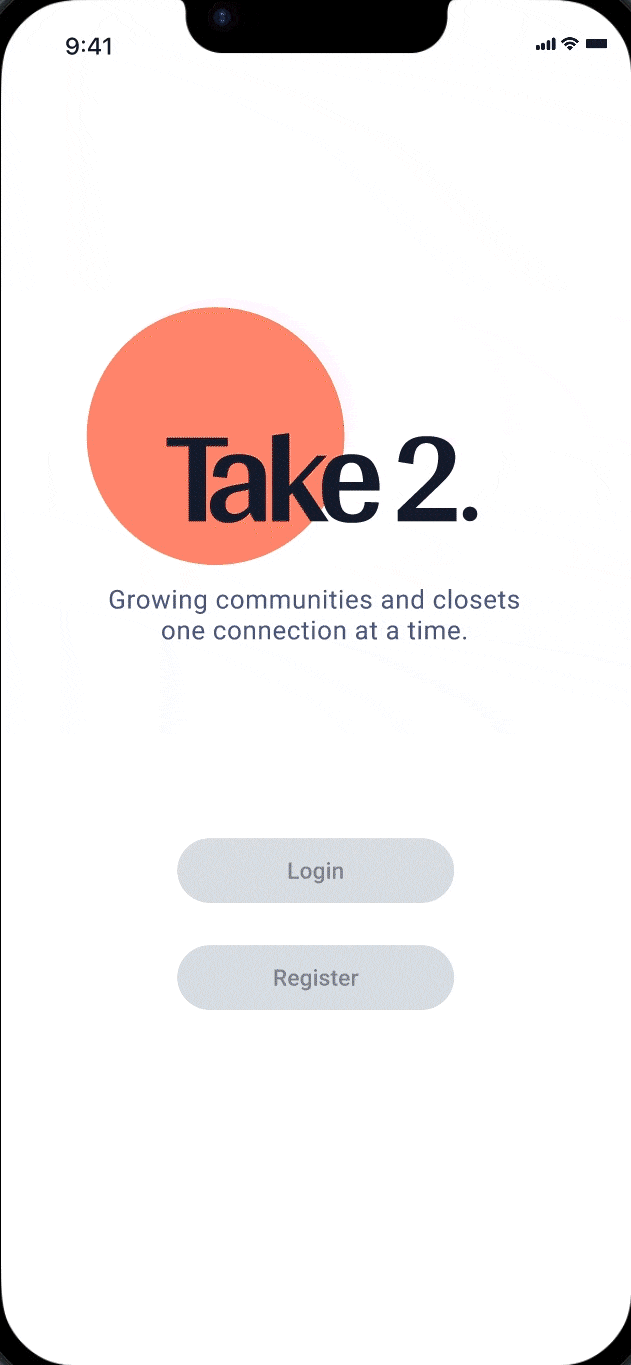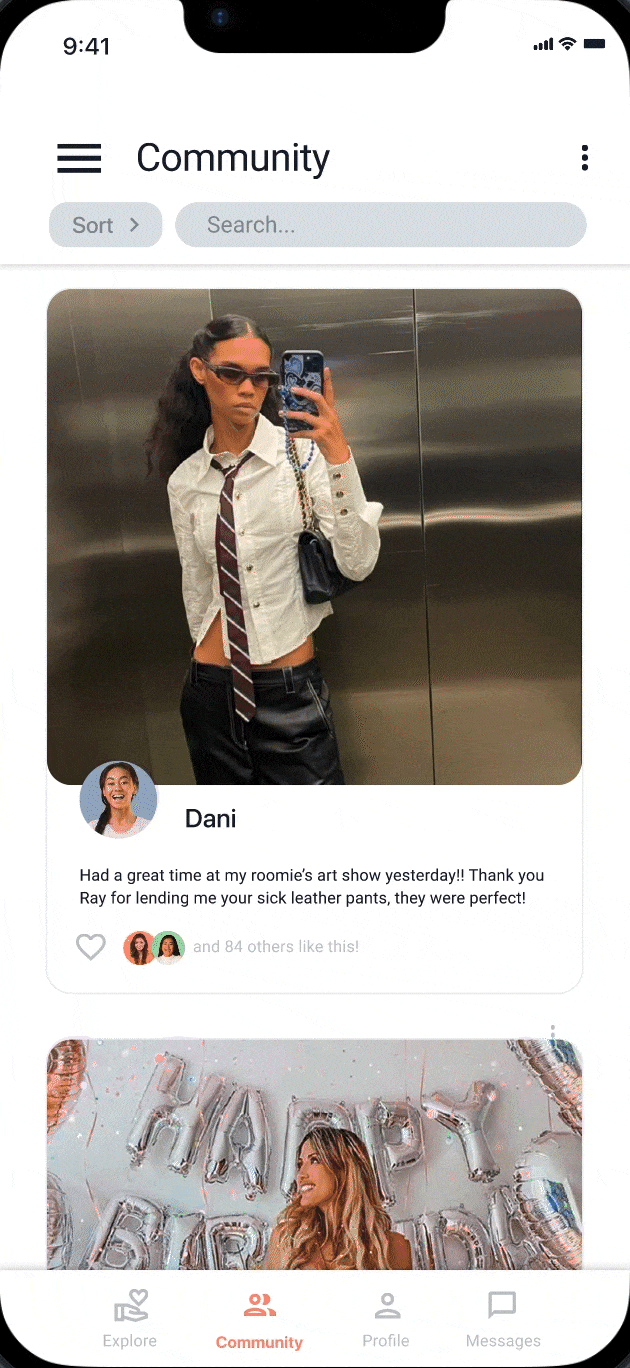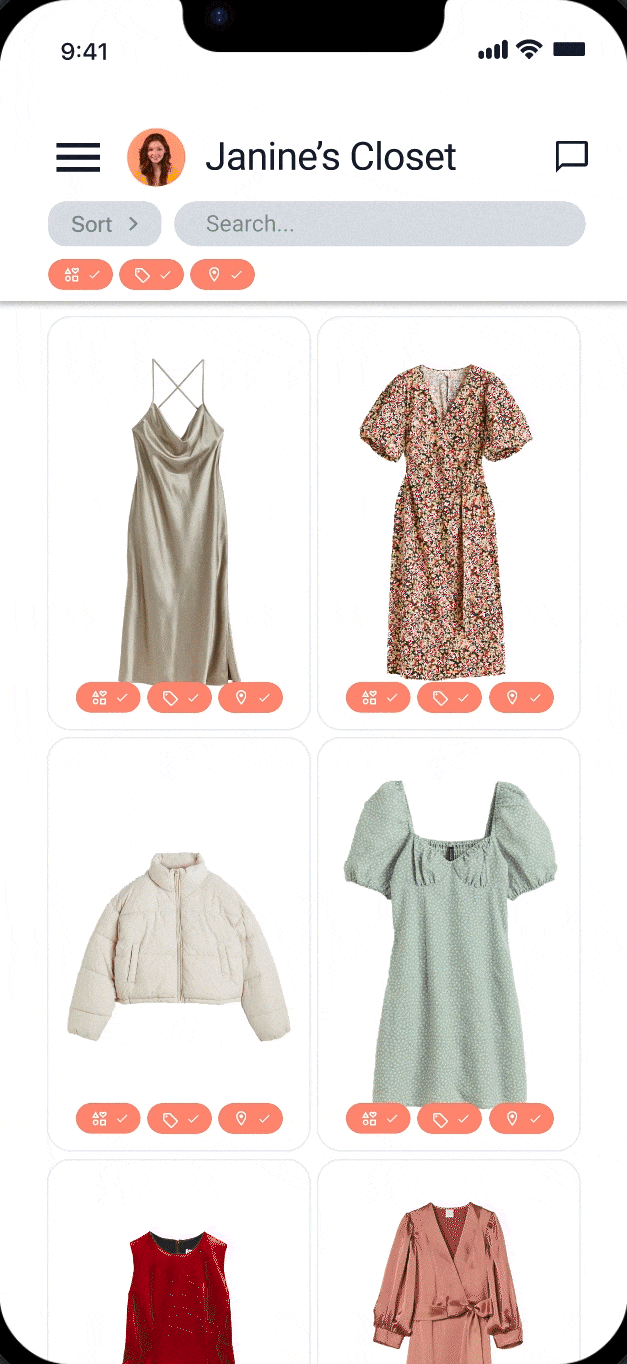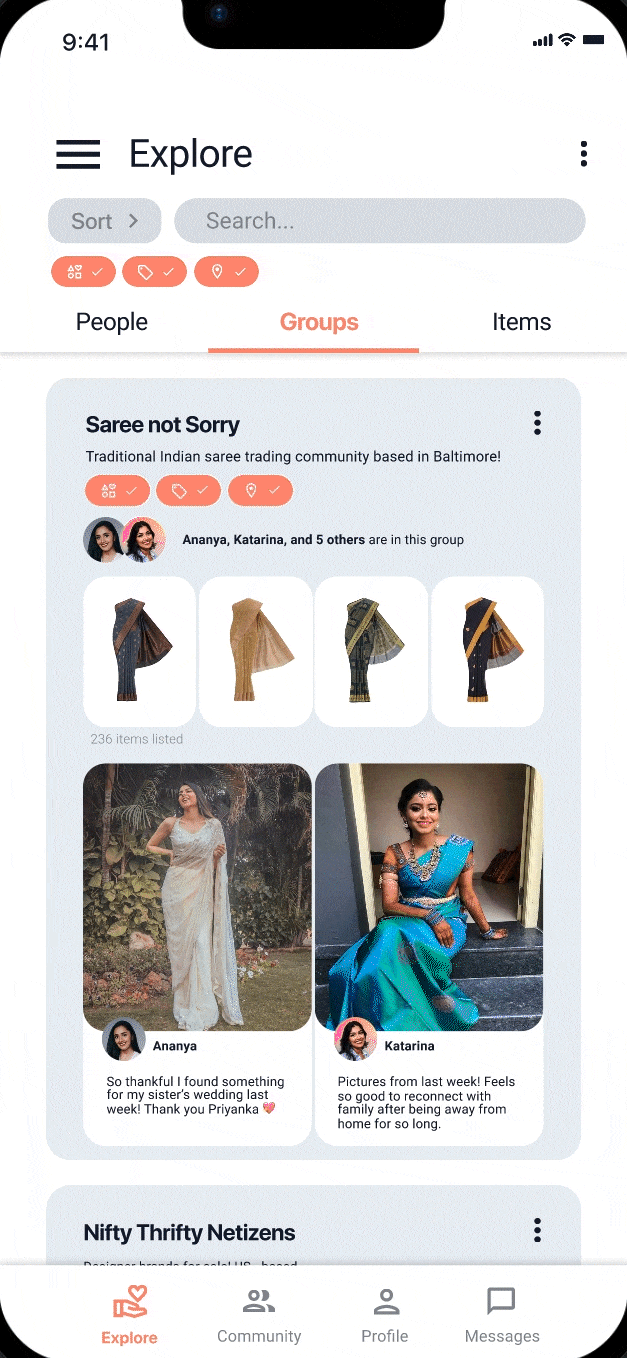Take2
With the rise of new technologies in the modern day, our team was tasked with harnessing the power of AR/VR in order to solve a problem in the clothing space. After extensive research to identify pain points with online shopping, we decided on a peer-to-peer social e-commerce app with a focus on being able to trade and borrow clothing. In terms of AR/VR integration, we added a feature that allowed the user to scan their body in order to receive accurate measurements. Users would get matched with other users that had similar measurements to ensure clothes exchanged between the two would fit for both individuals.
My Role
UX Designer, UX Researcher
Team
Caleb Sun, Archita Raj, Alexander Ma
Timeline
12 weeks (September 2022 - December 2022)
Prototype Link
shorturl.at/qsEMW
Presentation Link
https://docs.google.com/presentation/d/1Ni5Dp3AJmzV2-3QVE2T3RU5IBbsgr14nLe2ZRbpWI9Q/edit?usp=sharing

Initial Research
The first part of our initial research involved sending out surveys that asked a few questions about online shopping preferences. We used this to get a better idea of how popular online shopping was among our community. Next, we focused on using concept maps in order to understand the difference in user actions between in-person and online clothes shopping and noted how the biggest discrepancy is a lot more time is devoted to trying on the clothing when it came to in-person-shopping.

Generative Research
Generative Research
Generative Research
We conducted 15+ interviews with the following goals in mind:
-
Focused more on what people want to gain from their clothes
-
People’s values, desires, regrets, stories
-
“What do you want your clothes to say about you?”
-
“What has been a time where the clothing you owned made you feel bad?”
The responses can be read below.

From the interview responses, we split the responses into three categories: fit of the clothing, quality of clothing, and sentimentality/taste of the clothing. We created an affinity diagram to group all the responses.
From the interview responses, we split the responses into three categories: fit of the clothing, quality of clothing, and sentimentality/taste of the clothing. We created an affinity diagram to group all the responses.
From the interview responses, we split the responses into three categories: fit of the clothing, quality of clothing, and sentimentality/taste of the clothing. We created an affinity diagram to group all the responses.
After, we decided on three main user needs that we wanted to address with Take2
1. Inaccurate Sizing Details
Measurements listed by online clothing stores aren’t very useful, and customers instead rely on reviews for a better idea of sizing.
2. Sustainability
People want to have high quality items, but struggle to balance that with fast fashion availability and costs.
3. Emotional Impact
Reaffirming the social benefits of clothing; expressing interests, creating communities, and feeling good about yourself.

Final Solution
For the final product, there were a few aspects to keep in mind.
1. Build and maintain confidence
Individuals are often discouraged during parts of the online shopping journey because they're scared clothes might not fit, that the clothes won't look good, etc. This was accomplished through matching clothing to users based on accurate AR measurements, and then also allowing users to buy/trade directly from other users so that the peer-to-peer aspect could help ease any doubts on the quality/look of certain clothing.
2. Create long-lasting communities
This was accomplished by allowing users to join different groups based on interests. More importantly, we allowed users with similar body measurements to match and trade clothing with each other, hopefully creating a lasting connection as they can rely on each other for clothes that fit.
3. Sharing experiences and growth
We wanted to allow users to share their experiences with clothing they've bought/received through Take2. We did this by creating forums that promote celebrating experiences of others.
Here is an initial storyboard demonstrating the experience we wanted for our users:

And finally, here is the prototype we created using Figma.
AR Based Accurate Measurements
Body scanning performed through the camera lens to create a digital avatar.


Driven By AI
AI recommends groups and communities on the basis of your scanned measurements, style preferences, geo-location and other factors.


Fostering Communities
Helps build communities through similar cultures, occasions, hobbies and so on.


Sustainable
Promotes circular economy by encouraging exchange and borrowing of clothes and helps reduce fast fashion waste!

